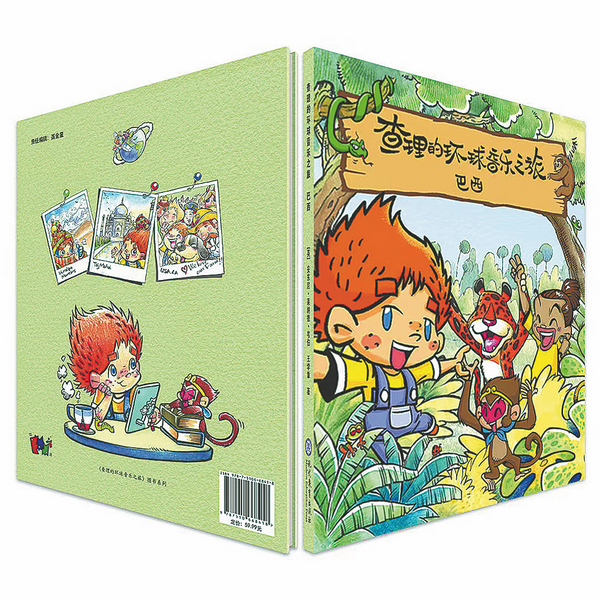

Ageless instrument
Wang started to learn violin as the age of 4. She was a professional guqin (the seven-stringed Chinese zither) player before getting interested in percussion music 20 years ago.
"I was attracted by the happiness it brought me when playing drums," says the 54-year-old. "The dynamism and passion of percussion music, as well as its interpretation of different musical styles, touched me. Each instrument is irreplaceable."
Hand drumming, according to her, is one of the easiest ways of playing music, suitable for people ranging from babies to the 99-year-old.
She thinks rhythm is the soul of all art, and that, in the realm of music, rhythm is the skeleton upon which all music is supported. It's the beauty of music that allows people to play drums in the same rhythm together within a couple of minutes, Wang says.
"Rhythm is omnipresent, including in our daily lives, work and even in our bodies. So, for young children, to learn how to play percussion instruments is especially important for their artistic enlightenment," she says.
Percussion education has always been an important part of the couple's focus, ever since they saw the limitations in Chinese musical education when they first brought African music to China in 2003.
In 2010, Webb collaborated with the Shanghai Percussion Association, a leading body for percussionists, to produce the African Drum Test Course, which still stands as China's only test material in that musical area.
Webb invited a local percussionist from Africa to record all of their rhythms. "He was just a natural player. He couldn't read music. So I gathered some professors of music from universities and we all sat down and listened. It took a year to transcribe it into Western notation," Webb recalls.
Two years later, Latin Percussion Tutorial was co-launched by Webb and the Shanghai Percussion Association, which catered to the growing demand for Latin percussion education in China, showcasing a comprehensive range of the main Latin percussion instruments with detailed illustrations.
In 2016, Toning Drum unveiled Rhythm for Well-being: Introducing the Drumming Health and Wellness Program for Chinese Communities and Seniors, which aims to promote the therapeutic benefits of drumming.
Wang has taught a group of over 30 senior students in Beijing's Sanlitun area since 2016. "They like playing with drums so much, and it makes them happy," she says.
Teacher training is also introduced, in which they invite renowned musicians and educators to conduct master classes and workshops in China, sharing their expertise and techniques with Chinese teachers, Webb says.